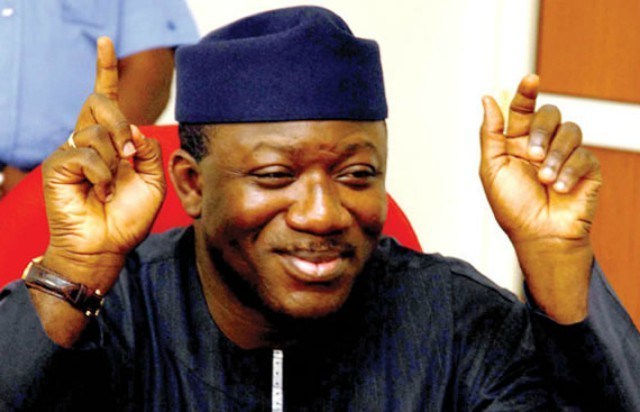The Governor of Ekiti State, Dr. Kayode Fayemi, on Wednesday emerged the new chairman of Nigeria Governors’ Forum, NGF, with Governor Aminu Tambuwal of Sokoto State as the vice chairman.
The two officers emerged through a consensus arrangement.
Fayemi succeeds the Governor of Zamfara State, Abdul’aziz Yari, and will lead the group until 2021.
Speaking shortly after a meeting of the group, Yari disclosed that Fayemi was nominated by the Governor of Kaduna State, Mallam Nasir El-Rufai, and seconded by the Governor of Delta State, Dr. Ifeanyi Okowa, before he was unanimously elected by the governors to lead the forum.
Tambuwal, Yari also stated, was nominated by the Governor of Lagos State, Akinwumi Ambode, and seconded by his Ondo State counterpart, Governor Rotimi Akeredolu.
In his acceptance speech, Fayemi said the forum would work with the Federal Government in the interest of the country.
“We will build on commitment with strong partnership with the Federal Government as federating unit and trash out issues as amicably as possible, in the over all interest of the country,” he said.
He added: “Whatever we are going to do will be in the overall interest of the nation in ensuring that our states are continuously strengthened.
“Our country derives the benefit of strong, dedicated states to our citizens and the partnership with all arms of government, development partners working with us in the over all interest of Nigeria.”
While reading the communiqué of the meeting of the forum, the outgoing chairman expressed concern over the recent guidelines of the Nigeria Financial Intelligence Unit (NFIU).
Said he: “The new guidelines have no legal basis under the NFIU Act and are contrary to constitutional provisions which put the State Joint Local Government Account under the legislation of the State Houses of Assembly.
“The guidelines will also be detrimental to the interest of states and local governments by crippling programmes such as the Universal Basic Education programme, Primary Health Care Under One Roof, as well as the payment of the salaries of teachers, medical doctor and health workers among others which are primarily funded by state governments.”














